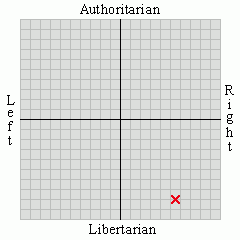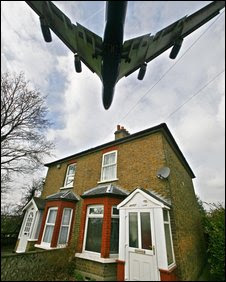Today is a remarkable day for a remarkable man: today, Barack Obama will become the first black President of the United States of America. But it is also an important day for another remarkable man – for today, after eight turbulent years in power, President John McCain is standing down and heading back to Arizona.
McCain is a man who has both powerfully and controversially dominated the political landscape of the USA for the best part of a decade. Despite governing resolutely from the centre ground, his out-spoken views and his professed desire to govern from both the head and the heart have meant that, for everyone lamenting the end of his time in the White House, there is another person celebrating – not least those in his own party.
And, lest we forget, it could all have been so different. Had McCain not won the South Carolina primary in 2000, then he would have struggled to win the Republican nomination from the favourite candidate, George W Bush. And winning that nomination enabled him to fight an energetic Presidential campaign later in 2000, and snatch victory from the heir apparent to the White House, Al Gore. History would be very different had Gore, or even Bush, become President.
McCain’s success in winning the Presidential Election in 2000 should not be under-estimated. Bush Junior had the firepower, the money, and the family name to win the nomination. Bush’s campaign also had no compunction about fighting dirty. Yet McCain, with his desire for “straight-talking” and his obvious relish for the underdog status, captured the public imagination, and with it, the Republican nomination.
Even then, his victory at the national polls looked far from assured. He trailed Gore in the polls, despite uniting the party by making George W Bush his running mate. However, his honest and enthusiastic manner, which undermined the cruel jibes about his age, meant he soon started to win over the nation as a whole. His real triumph came in the debates, when his warm, open speaking style brought into sharp relief the much more stilted and intellectual approach of Al Gore. It is one of the lasting debates surrounding the 2000 Presidential Election – whether McCain won it or whether Gore’s lacklustre campaign lost it. But the remarkable political rise of John McCain was completed on Election Night when Florida fell into his column and with it, the White House.
The First TermYet, once president-elect, McCain seemed to lose his way and with it his identity. He remained resolutely in the centre ground, leading many in his own party to comment that they seemed to have accidentally elected Al Gore rather than a Republican. His Inauguration speech in 2001 was poor, filled with truisms about more honest government delivered by a old man visibly shivering against the cold. During his first few months in power, the now President McCain seemed to be lost, offering few initiatives and appearing to treat water in the White House. Some wondered whether McCain was actually up to the job of President.
All this changed in September 11th, 2001. McCain’s angry, defiant call to arms after the planes hit the Twin Towers and the Pentagon, as well as the plane brought down by its own passengers, showed a confident leader rising to the challenge. Despite the advice of the Secret Service, and the danger involved in going into a disaster area, he was in New York City within hours of the atrocity – talking to survivors, and making sure that the rescue attempts and investigations were being co-ordinated effectively across the country.
After it became clear that Al-Qaeda was behind the attacks, McCain was quick to work on a response. Through diplomacy he was able to get troops on the ground in Pakistan – with the blessing of the government of Pakistan. However, the Taliban regime in Afghanistan proved to be more difficult, and as they refused to hand over bin Laden, McCain worked hard to bring together an international coalition to deal with the problem. With UN backing, McCain ordered the attack on Afghanistan.
The Afghan war is probably the most divisive part of McCain’s legacy. Whilst the out-going President remains defiant over his decision to invade, US troops are still fighting in Afghanistan, with no sign of bin Laden or an end to hostilities. For every patriot who praises McCain for his tough stance in Afghanistan, there is a peace lover calling for the return of US troops. McCain has gone on record as arguing that the death toll could have been worse, had he listened to the hawks in his administration. Nonetheless, the US occupation of Afghanistan remains a poisoned chalice for incoming President Obama.
McCain also showed himself to be a tough fighter when it came national politics as well. He was scathing of the failings of both the CIA and the FBI in the run up to 9/11, eventually replacing the directors of both. He also fought hard to introduce new accounting laws after the collapse of both Enron and Worldcom, controversially (in his own party) putting big business on warning that any fraudulent directors would be prosecuted to the full extent of the law.
Perhaps the most surprising, and interesting, aspects of McCain’s first term in power was the relationship he had with his Vice-President, George W Bush. Bush was a hawk within the administration, and on several occasions broke ranks with his President to call for a War on Terror on Iraq. McCain steadfastly refused to countenance such a step, arguing that whilst there was some evidence that Iraq was sponsoring terrorism and that a regime change would be a good thing, there was no real evidence that Iraq was connected with 9/11. As the first term went on, though, it became very clear that there was little love lost between President and Vice-President.
As the 2004 election drew near, few thought that there was any real danger of McCain not securing the nomination again. And, indeed, that proved to be the case. However, as soon as it became clear that he would not be opposed in running for the nomination, McCain announced that he would not be running again with George W Bush. The Bush camp was enraged, but it was too late for them to oppose McCain. However the move threatened to destroy Republican unity just before an election. Some speculated that McCain was about to announce he would run as an independent. However, the President had another trick up his sleeve. He announced Joe Lieberman, Gore’s Vice-Presidential candidate, as his running mate. The selection electrified the political seen as it was genuinely a cross-party ticket. It also proved to be a strong political move for the election, despite the problems it created in his second term. It stole all the glory from John Kerry’s campaign, and redefined the McCain administration as centre-of-the-road politically. Whilst McCain may have lost some votes from the Christian Right of the party, he gained them from the Democratic Party.
In the event, the 2004 election was something of an anti-climax. John Kerry never stopped training in the polls, and as one of his team pointed out, he was simply the wrong candidate in the wrong place at the wrong time: “We were running a Vietnam war hero against an even more heroic Vet, running an experienced Senator against an experienced Senator and President, running with a centrist candidate against a President who had taken on one of our own as his candidate.” In the end, the result was a foregone conclusion: McCain won in a landslide.
The Second TermMcCain won further plaudits after Hurricane Katrina devastated New Orleans. He put troops on the ground and ploughed money into the rescue efforts, leading some to claim that he saved hundreds of lives. His independent investigation into the disaster recommended millions should be ploughed into flood defences; something which McCain was happy to do. But despite his successes here, his Presidency was increasingly being undermined by his own party.
Many were unhappy with his decision to dump Bush and take on a Democrat; this was not helped by several on-the-record, scathing remarks about various Republicans suffering corruption scandals. Events reached a head when a group of Republicans attempted to have McCain expelled from the Republican party. McCain laughed off the attempts and they came to nothing. Nonetheless, McCain appeared increasingly isolated from his own party, and declined to do too much active campaigning for his own party in the 2006 mid-terms. The loss of the control of Congress to the Democrats hurt McCain, and he became increasingly reliant on his Vice-President to liase with the Congress.
He was also hurt as the economy began to freefall. In contrast to his prompt action in the face of both 9/11 and Hurricane Katrina, McCain seemed to struggle to find a path to deal with the economy. He was also hurt by Lieberman’s decision not to stand, and watched with mounting horror as the Republican party fell into a bitter fight between the moderates under Mitt Romney and the Republican Christian Right under Mike Huckabee. In the end, the moderates won through, with Romney as the Republican candidate and little-known Alaskan governor Sarah Palin as his running mate. But as the economy collapsed, and leading a party torn apart by infighting, a resurgent Democratic Party, headed by Barack Obama, won the election comfortably.
In his most recent interview, McCain candidly described his years in the White House as “six of the most challenging, and rewarding years you could ever hope for, followed by two of the most challenging and depressing you could ever dream of.” He appears now as a tired man, looking forward to retirement. Time will tell how his time as President is truly judged; but he leaves behind a mixed legacy and has lead the USA through a roller coaster eight years.
Labels: Bush, Huckabee, McCain, Obama, Random, Romney, What If?




 Sweet Jesus, it is difficult to think of a less appropriate image for a story about airport expansion short of posting a picture of 9/11. In that picture the plane looks like it is
Sweet Jesus, it is difficult to think of a less appropriate image for a story about airport expansion short of posting a picture of 9/11. In that picture the plane looks like it is 



